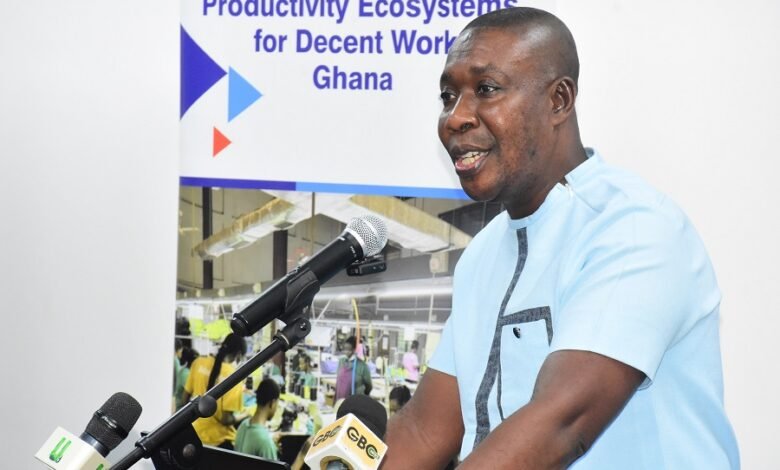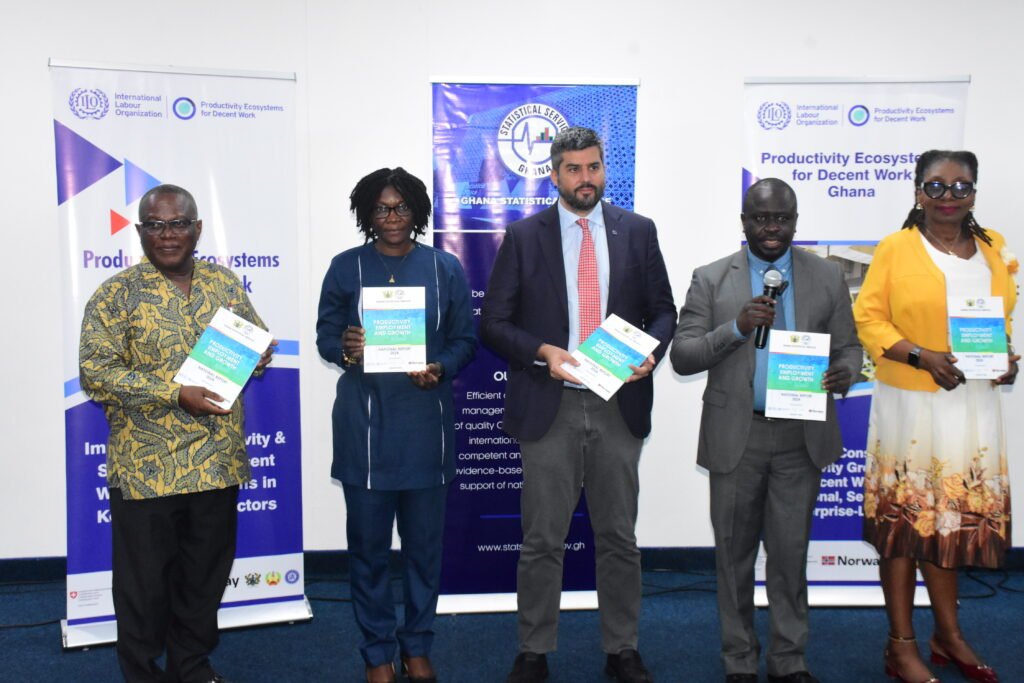
The government has been urged to increase investment in technology in the labour sector to increase productivity to accelerate the country’s development.
A Professor of Economics at the University of Ghana, William Baah Boateng, said the country could achieve higher productivity growth if technology was deployed in the delivery of government services.

Speaking at the launch of the Productivity, Employment and Growth Report, he said the report was developed by the Ghana Statistical Service (GSS) with support from the International Labour Organisation, Productivity Ecosystems for Decent Work Ghana, the Swiss and Norwegian government.
It is aimed to promote productivity growth for decent work.
Prof. Boateng said the government must seriously invest in technology as it was doing in labour and capital, adding that technology drove productivity.
The professor said labour productivity since 1990 had been positive and, labour productivity growth had been trending upwards.
He said Ghana was doing better than the lower middle income countries but fall short of upper middle income countries in terms of productivity.
He explained that the economy had been growing and since the 1980s the country had not recorded negative growth.
Prof. Boateng said the country must transition from informal to formal to better drive the growth of the economy.
He also called for increased investment in skilled labour, saying the report revealed labour productivity was higher than earnings.
Prof. Boateng lauded the GSS for the report and said it would help the National Development Planning Commission (NDPC) and government in policy and planning purposes.
The Chairman of the National Development Planning Commission (NDPC), Dr Nii Moi Thompson, said the government was working to ensure the efficient utilisation of its resources.
“In the heart of the 24-hour economy initiative of the government is efficiency and productivity,” he stated.
Dr Thompson said productivity in the public sector was low due to the informal nature of the Ghanaian economy.
According to him, data from the GSS indicated that 20 per cent of the labour force had no formal education and 54 per cent had basic education.
That, the Chairman of the NDPC said made a lot of labour force unfit for the current global economy and mentioned poor infrastructure, energy challenges and poor work place conditions and wages.
He said the country must focus on output per hour work if it’s labour force instead of the output per worker.
Dr Thompson said while the output per hour work was $70, that of Ghana was between five and six dollars
Dr Thompson pledged that NDPC was ready to use the GSS statistics to inform government policies.
He said as part of the 10-point research agenda, the capacity of NDPC staff would be built to develop on employment impact analysis.
The Government Statistician, Professor Samuel K. Annim, said apart from economic statistics, the new focus of GSS was to produce other statistics that would be policy relevant.
He said the new report was to assess the efficiency in the use of capital and output (labour.)
The Government Statistician said the country’s Gross Domestic Product would grow if productivity was improved.
Among others, Dr Annim said the report looked at output per labour and technology and innovation as well as productivity and employment.
The Project Manager of the ILO Productivity Ecosystem, David Marcos, in his remarks, said high productivity was crucial for national development.
He said the 24-hour economy agenda could not be achieved without high productivity and decent work.
Mr Marcos said the ILO supported GSS to develop the report to help in national planning to accelerate the country’s development.
He said the report highlighted areas which the government must pay attention to.
BY KINGSLEY ASARE







